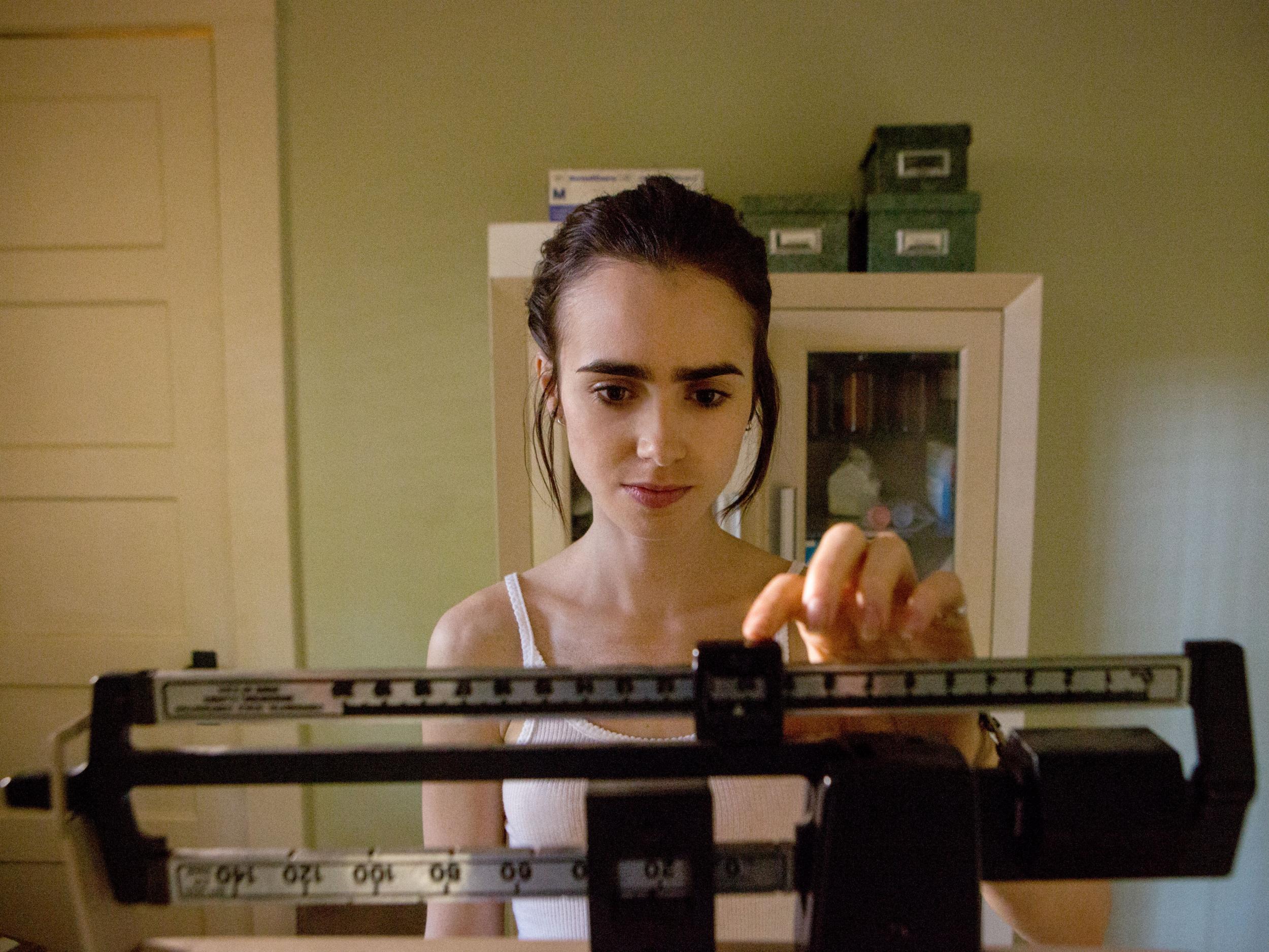To The Bone is wrong in its portrayal of anorexia – by glamourising such a visible illness, it dangerously misses the point
Eating disorders are characterised by absence in more ways than just the obvious actual hunger, and cannot hope to be summed up in the manner that this film attempts

Who has the right to tell a story? If we ourselves suffer, do we then have the authority to present our pain as we see fit? I wondered that this week as I watched Netflix’s controversial new drama To The Bone which tells the story of Ellen, a young anorexic woman recovering in a treatment centre.
Marti Noxon, the film’s director, has herself suffered from eating disorders, and so too has the film’s star Lily Collins. This point is raised often when To The Bone is criticised as glamorising anorexia and serving as fodder for online pro-anorexic communities. But do the histories of these women mean we must accept this film and its intentions at face value?
To The Bone is a largely unremarkable film, tonally a sort of by-rote American indie Sundance-By-Numbers job, but as films about anorexic women have tended to be more along the lines of Lifetime daytime television, it marks a departure for representation of this illness. This seriousness is brought up as a point in its favour when it is criticised – the idea being that it’s important to spread realistic portrayals of anorexia, to further public understanding of its nature and manifestations.
But of course, of all mental illnesses, anorexia is the one that least requires a visual explanation. The end point of anorexia is well known even to those of us utterly ignorant of, say, what schizophrenia or bipolar disorder might look like in reality. There is no need for a public information campaign on this subject. Anorexia, unlike those other illnesses, exists in an ambivalent social position. We are all in agreement about how dreadful and tragic it is, but the painful thing about our relationship to eating disorders is that we dramatically fetishise their sadness while overtly rewarding the same mechanisms that facilitate them. Denial, temperance, self-punishment are all seen as worthy moral endeavours. Shows like The Biggest Loser literally depict people torturing themselves, making themselves sick, in order to be thin.
There are many things to criticise about To The Bone. That its production compelled James, an ED sufferer, to lose a huge amount of weight she did not have to lose is a fairly compelling one. That images of her frail, troubling body have since been widely disseminated as “thinspiration” is horrifying, though unsurprising. Noxon herself had her eating disorder triggered by the filming experience, saying in one interview: “I started to need to turn to the other female producers quite frequently and say: ‘I’m going to need you to tell me that I don’t need to lose weight’.” But even leaving aside these legitimately worrying points, the film’s stated aims which supposedly justify them are incoherent. It is self-evidently wrong that to merely represent the physical outcomes of an illness as complex as anorexia is in itself useful.
When I had an eating disorder it replaced every other feeling I had and wished to avoid. Having a specific, theoretically attainable goal that I could get obsessed with allowed me to skim glacially over the more muddled indescribable pain I was in. I was too frightened to consider that pain, which threatened to consume me wholly if I approached it. That’s why to me, eating disorders are characterised by absence in more ways than just the obvious actual hunger, and cannot hope to be summed up in the manner that this film attempts. They were a way to totally sabotage my ability to feel, to hollow out not just my physical self but my emotional self too.
I was tremendously angry then, but I could never have told you so at the time. I don’t remember a single instance of registering that feeling. But when I reflect on that entire period now all I sense is a fury which could not articulate itself, which manifested instead in the self-injurious ways I had learned from culture were available as pressure valves, which included starving.
This absence, this loss I was trying to paper over, is not a sexy story – it’s far less sexy, for instance, than the tragic irony of the girl who ostensibly has everything starving to death in the suburbs. But these absences are where the real story lies, and portrayals like the one we see in To The Bone are really nothing other than a dangerous procrastination.


Join our commenting forum
Join thought-provoking conversations, follow other Independent readers and see their replies